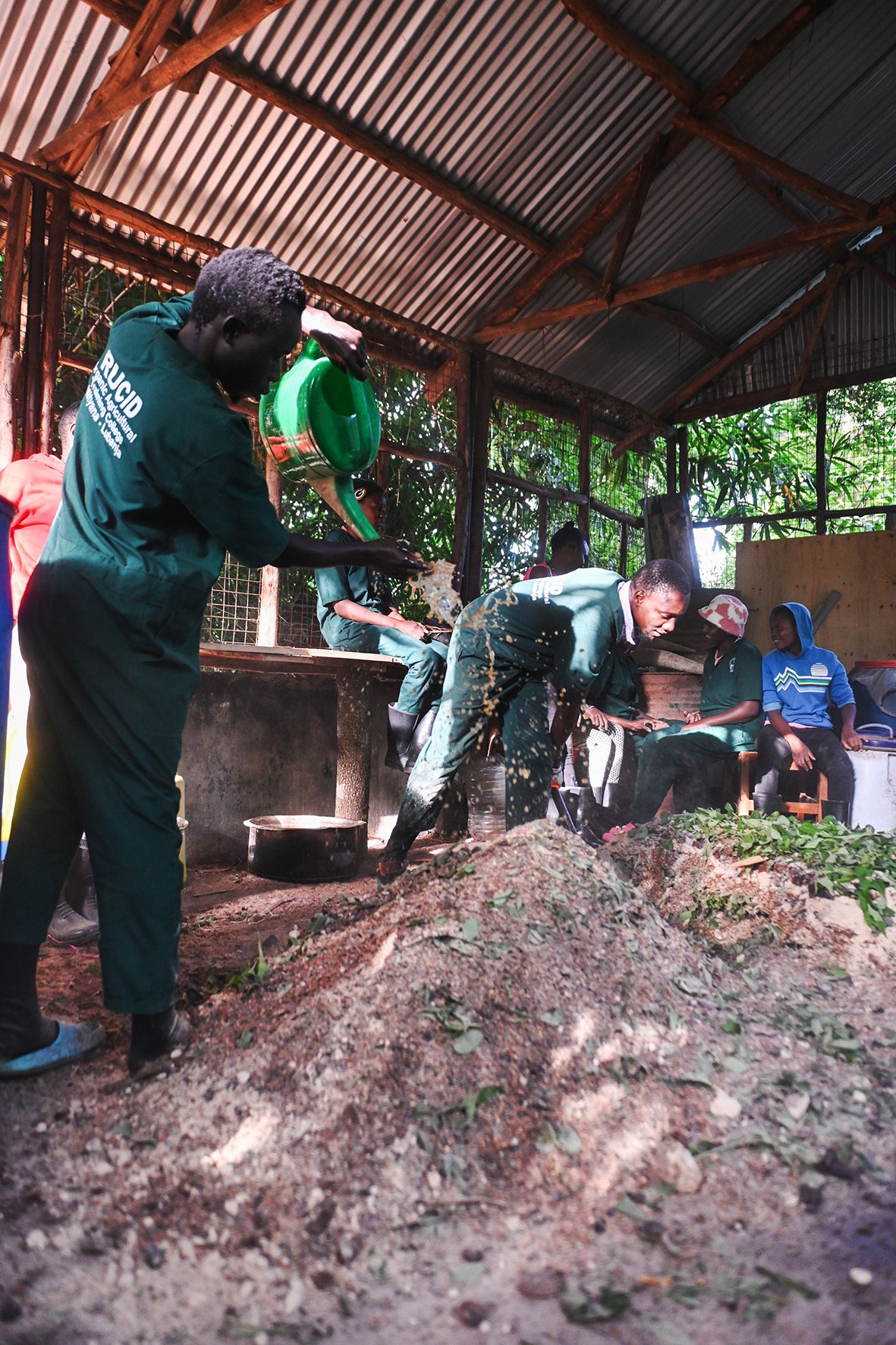
Reviving indigenous foods in Africa to regenerate the soil, nourish the body, and strengthen livelihoods.
The Gap
There is a stark disconnect in Africa between the nutritious indigenous foods that once flourished and the imported goods and one-sided diets now dominating supermarket shelves, farms, and plates. This shift has disrupted health, reduced incomes, degraded the environment, and eroded cultural traditions.
The Challenge
According to the UN, 85% of food in Africa is imported, despite over 50% of the population working in agriculture. Although Africa has more native cereals than any other continent, many of today’s staple foods are made from imported wheat flour. Indigenous staples have been replaced by maize or rice, which often serve merely to fill stomachs, with little focus on long-term nutrition or soil health.
There is also a misconception that imported foods are superior. These “fancy” foods are seen as status symbols, with refined foods equated to wealth. Many people are unaware of the health benefits, medicinal value, or even the names of the indigenous plants growing wild in their own gardens, often overlooking these plants as real food. This traditional knowledge—along with access to indigenous seeds—has steadily diminished, as it is largely passed down orally and remains partially undocumented and under-researched.
Small-scale farmers face further obstacles, including limited access to safe processing technologies, adequate facilities, and quality equipment to extend their products’ shelf life. As a result, they often experience greater waste or are forced to sell their goods at lower prices due to unmet quality standards. Large companies often persuade small farmers to purchase hybrid seeds linked to chemical- based value chains.
Meanwhile, NGO feeding programs have unintentionally promoted one-dimensional diets. These donations have also shifted the responsibility for feeding children away from parents, fostering dependency and limiting self-sufficiency.
The Vision
Starting in Uganda, in partnership with RUCID Organic Vocational Training College in Mityana and local communities, BODY&SOIL’s vision is to establish a social enterprise that integrates all aspects of food production from the soil to the plate to promoting health and growth.
Our journey begins with rediscovering and reintegrating indigenous African foods. Together with farmers, students, and schools, we identify crops that can replace maize and other imported staples. We also examine ways to make these heritage foods more visible, appealing for the market, and safely and hygienically processed. Together with the communities, we will identify foods that have market potential and that children and adults alike enjoy eating.
What sets BODY&SOIL apart is our holistic approach: we connect soil health to the nutritional value of food on people’s plates. By educating farmers and schools in regenerative farming and practical nutrition, we aim to empower communities to heal their soils and their bodies, sustaining themselves through foods rooted in their cultural heritage.
Achieving Our Vision
To bring our vision to life, BODY&SOIL will focus on research, documentation, monitoring, and evaluation, applying an outcome-oriented approach rooted in the "Systems Change" model. This ensures we tackle root issues, not just symptoms, by addressing social behaviors and encouraging mindset shifts.
Our Next Steps Include:
Conducting a baseline study to assess current farming practices, nutritional habits, and existing resources.
Working with two pilot communities and their schools to create regenerative gardens RUCIDs established demo gardens.
Educating in all aspects of production, from seedlings to processing and finally to the plate.
Work with community members, Students and children to discover which indigenous foods from the garden can replace one-sided staples, such as maize, while being both appealing and satisfying.
Training and Collaboration
In the pilot phase, participants—including women, students, and farmers—will gain hands-on skills in growing and safely processing crops. Together, we’ll identify potential products suitable for African and international markets, while creating self-sufficient systems where local harvests support school meals and improve diets for children and families.
Adapting as We Progress
Transforming mindsets, introducing new crops, and building sustainable systems takes time. Our three-year pilot will evolve based on community needs and feedback.
Key Goals
Replace maize meal and imported staples with nutritious, indeginous foods.
Develop healthy and delicious school diets sourced from the community's indigenous foods.
A Community Co-Created practical Manual for soil health and nutrition for scalabilty
Documentation of indigenous foods incl. nutritional values in local and English, supporting health initiatives.
Expansion of the already existing local seed bank at RUCID College.
Identify an overview of local products that could thrive in the broader market, identifying potential partners for collaboration.
Increased Awareness and Behavioral Change
Enhance soil health and biodiversity and combat climate change
Help people heal themselves through knowlege in food
Process foods safely and hygienically.
The Bigger Picture
By laying the groundwork through grassroots research, monitoring, documentation, and collaboration with local communities, partners, and experts, we aim to develop a scalable educational framework that can be implemented across Africa.
Our ultimate goal is to establish a social enterprise that connects these efforts—empowering the small scale-farmers to heal both body and soil, achieve self-sufficiency, and bring nutritious, safe and culturally rooted foods to the market.

Want to Be Part of the Movement Toward Holistic Health?
-
Become a Member
Support our work with a monthly donation to help create sustainable solutions that empower communities to reclaim their food systems and tackle climate change.
-
Collaborate
Are you an expert in nutrition, agriculture, or community development? Partner with us to share your expertise and contribute to practical, lasting solutions.
-
Subscribe to the blog
Sharewith your friends, help us reach more people. Follow us on linkedIn, Instagram or YouTube or all three:) Don’t forget to subscribe to the journal below!
























